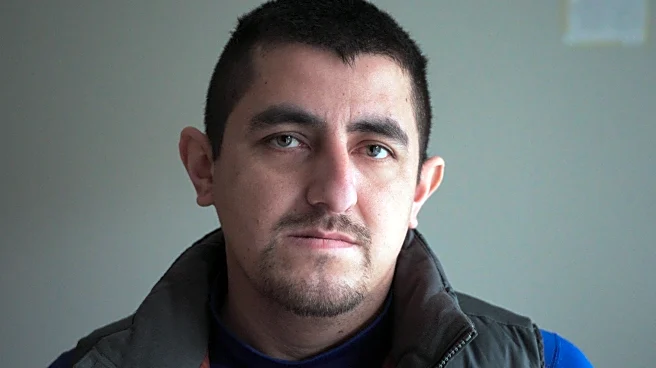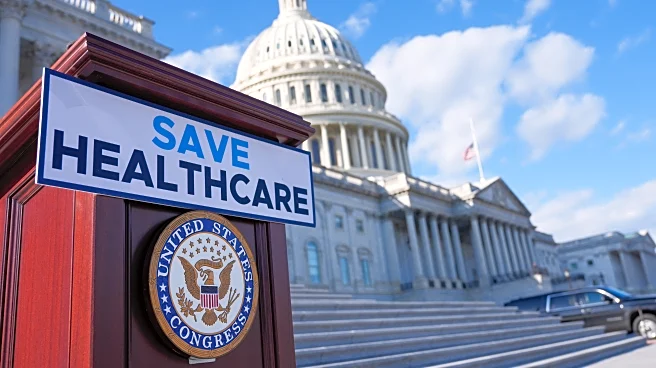What's Happening?
Recent protests in Morocco, led by Gen Z activists, have highlighted widespread discontent with corruption and inequality. The demonstrators are calling for the resignation of the prime minister and demanding
social reforms, criticizing the government's focus on grandiose projects like stadiums while neglecting essential services like hospitals. The protests have gained momentum, with participants urging a boycott of upcoming soccer matches and demanding the release of arrested protesters. The most recent information indicates that these protests continue to gain traction, reflecting deep-seated grievances within the Moroccan youth.
Why It's Important?
The protests in Morocco underscore a significant generational shift, as young people increasingly demand accountability and transparency from their government. This movement could have broader implications for political stability in the region, as it challenges the status quo and calls for systemic change. The focus on social services over infrastructure projects highlights a growing demand for equitable resource distribution, which could influence future policy decisions. The protests also reflect a global trend of youth-led movements advocating for social justice and reform, potentially inspiring similar actions in other countries.
What's Next?
As the protests continue, the Moroccan government may face increased pressure to address the demands of the demonstrators. Potential responses could include policy reforms or increased investment in social services. The international community may also take interest, potentially influencing diplomatic relations and foreign aid. The outcome of these protests could set a precedent for how governments in the region respond to youth-led movements, impacting future governance and policy-making.
Beyond the Headlines
The protests in Morocco highlight deeper issues of governance and resource allocation that are not unique to the country. The movement's emphasis on social justice and equality resonates with global calls for reform, suggesting a potential shift in how younger generations engage with political systems. This could lead to long-term changes in political participation and civic engagement, as well as influence cultural attitudes towards governance and accountability.









